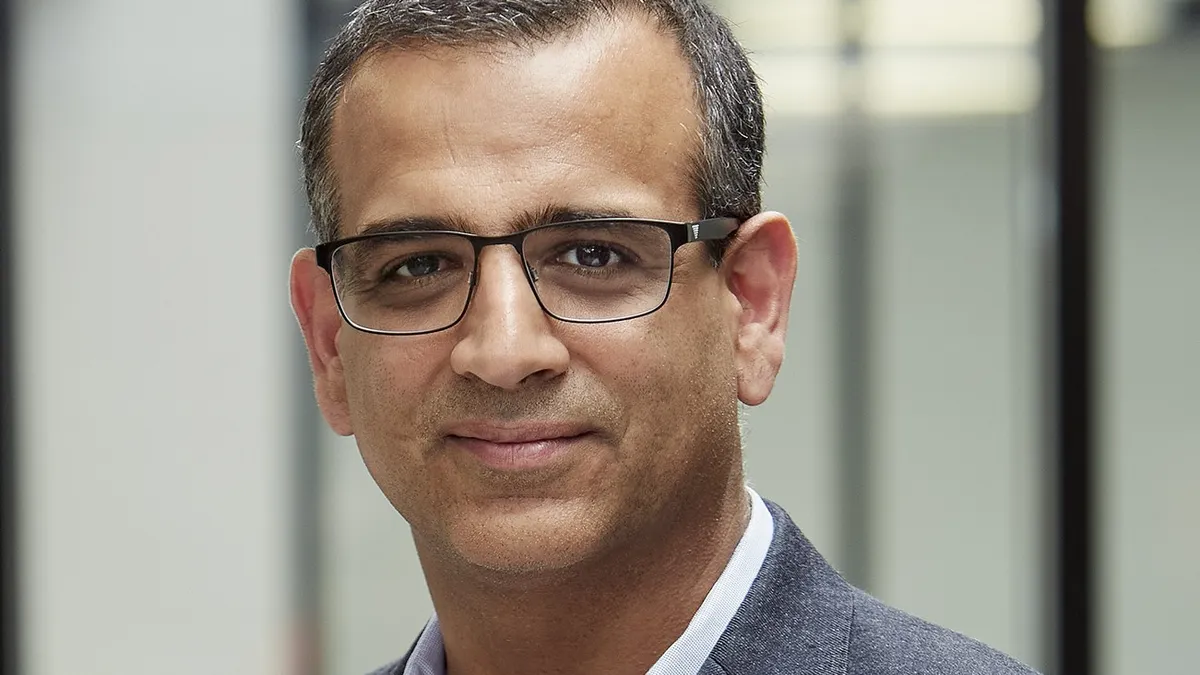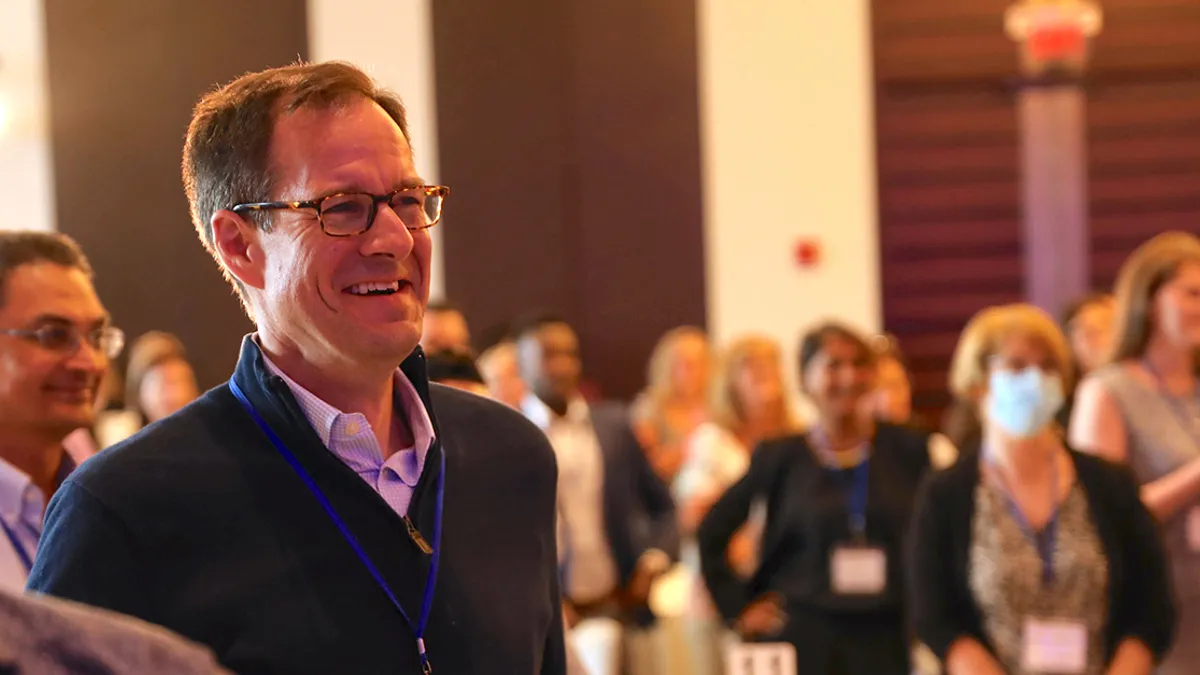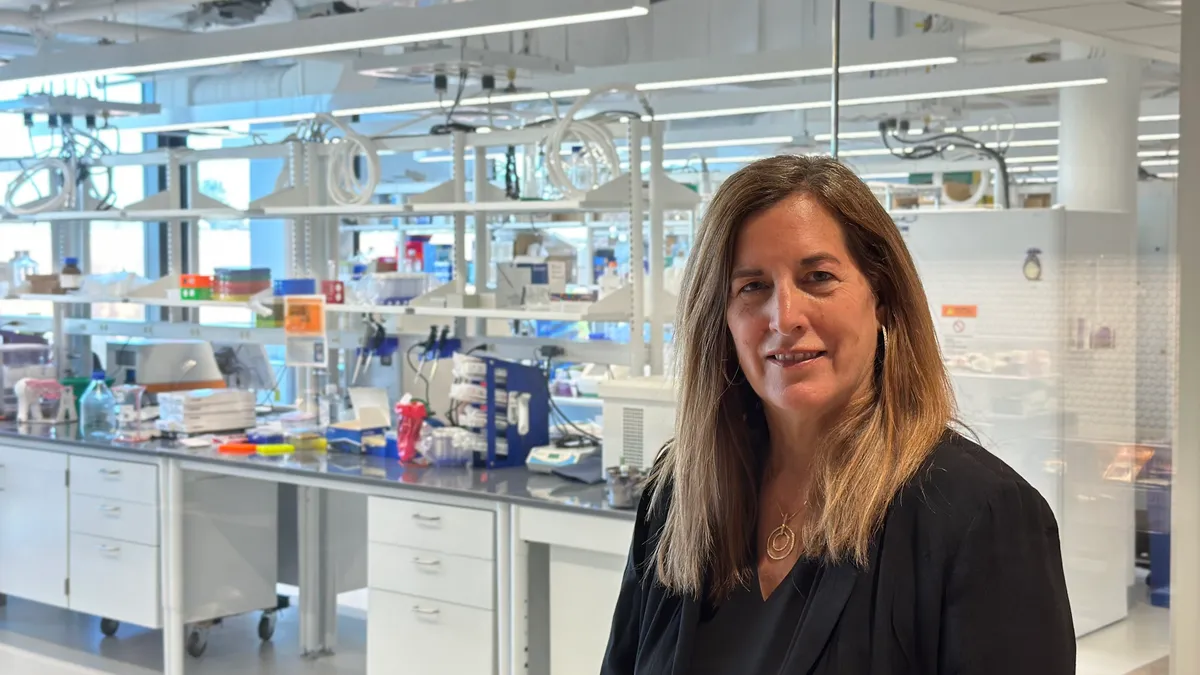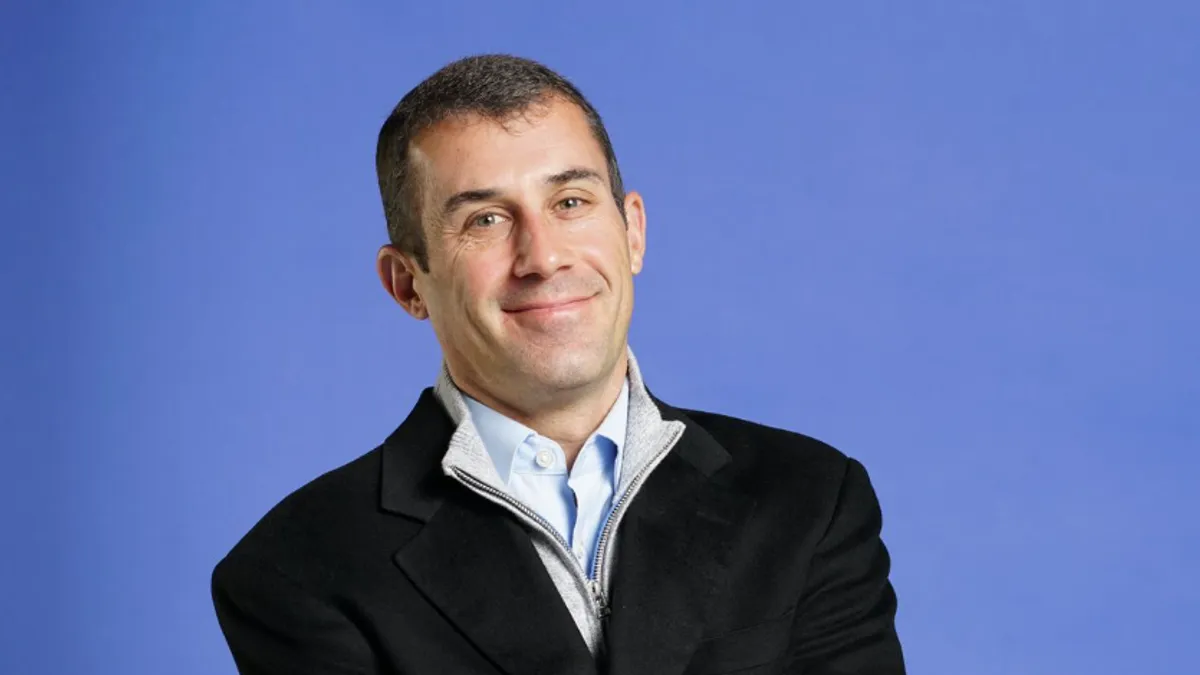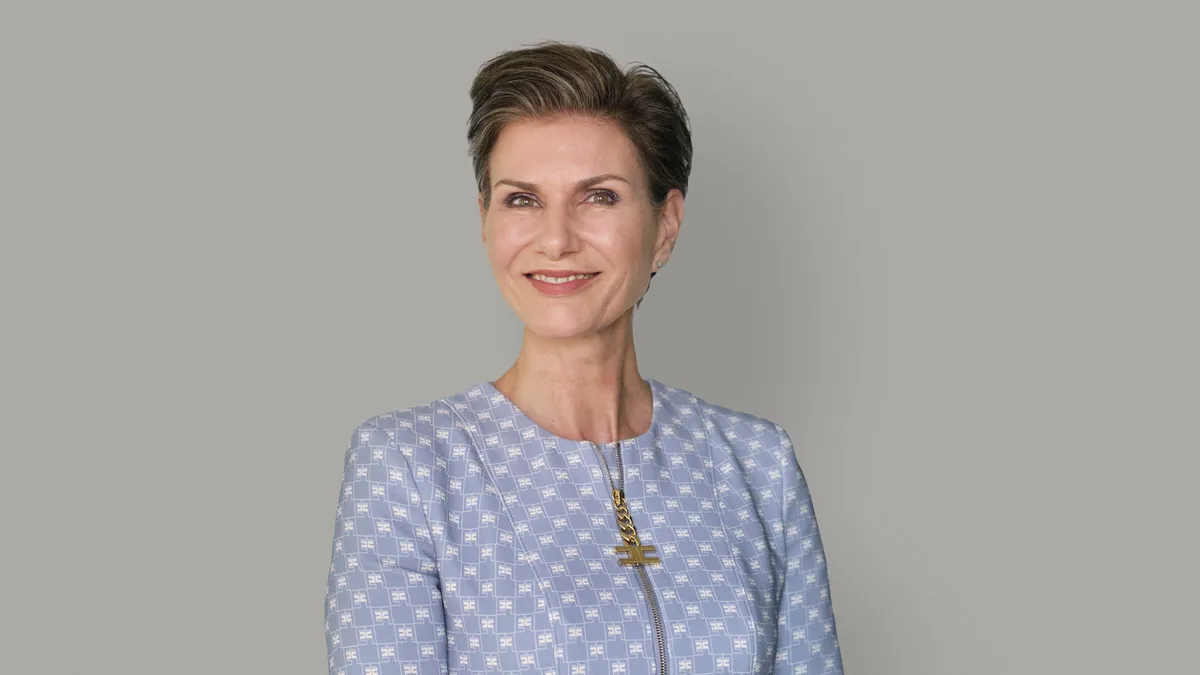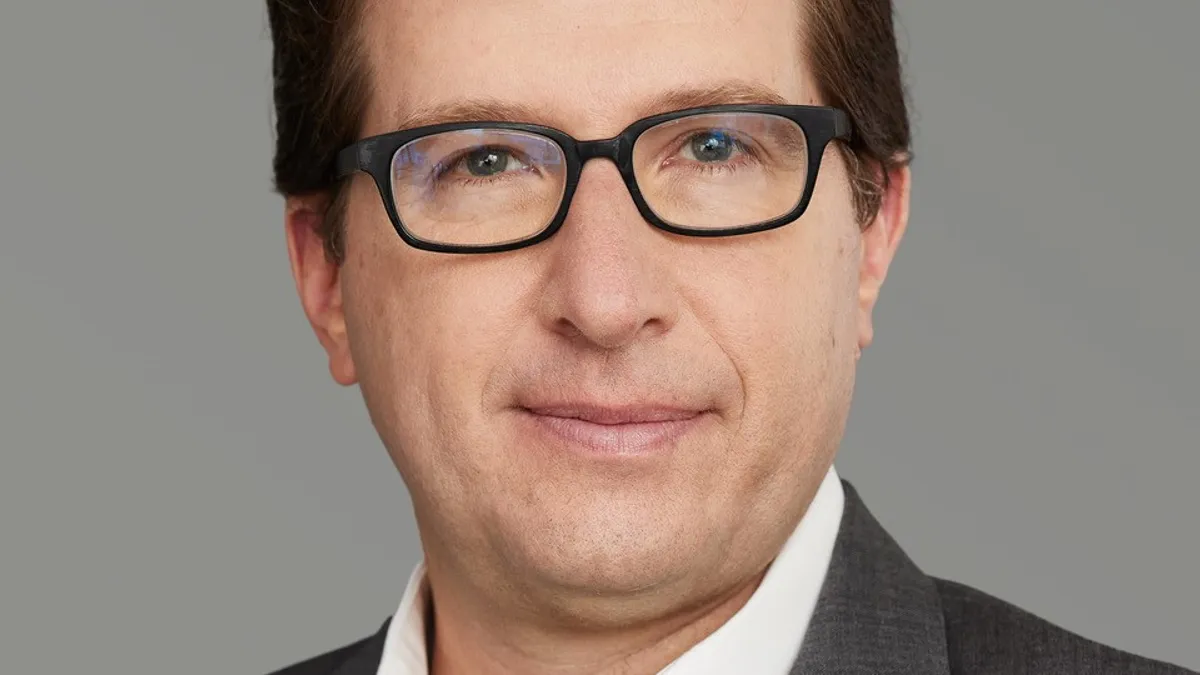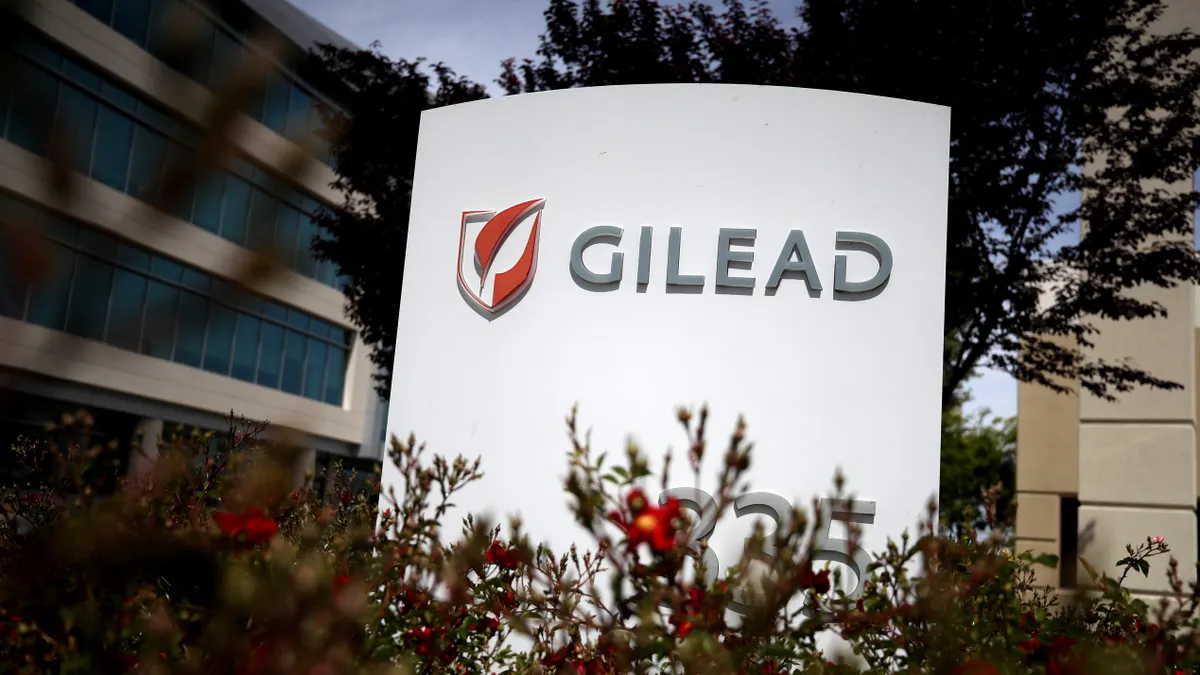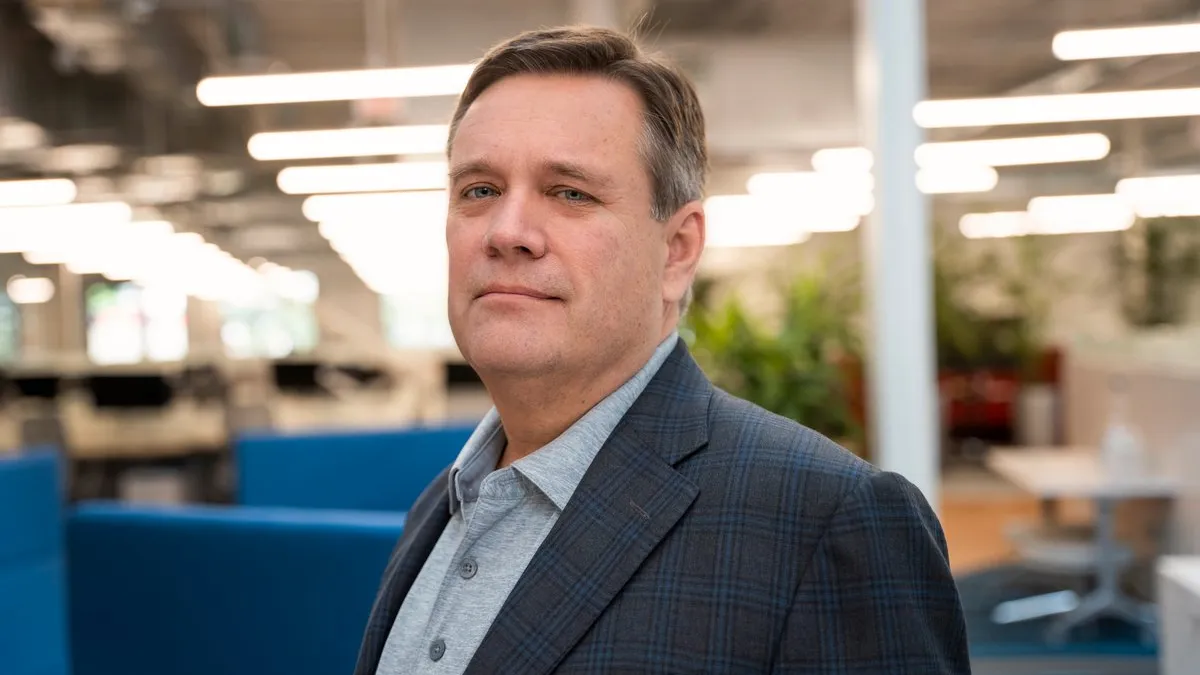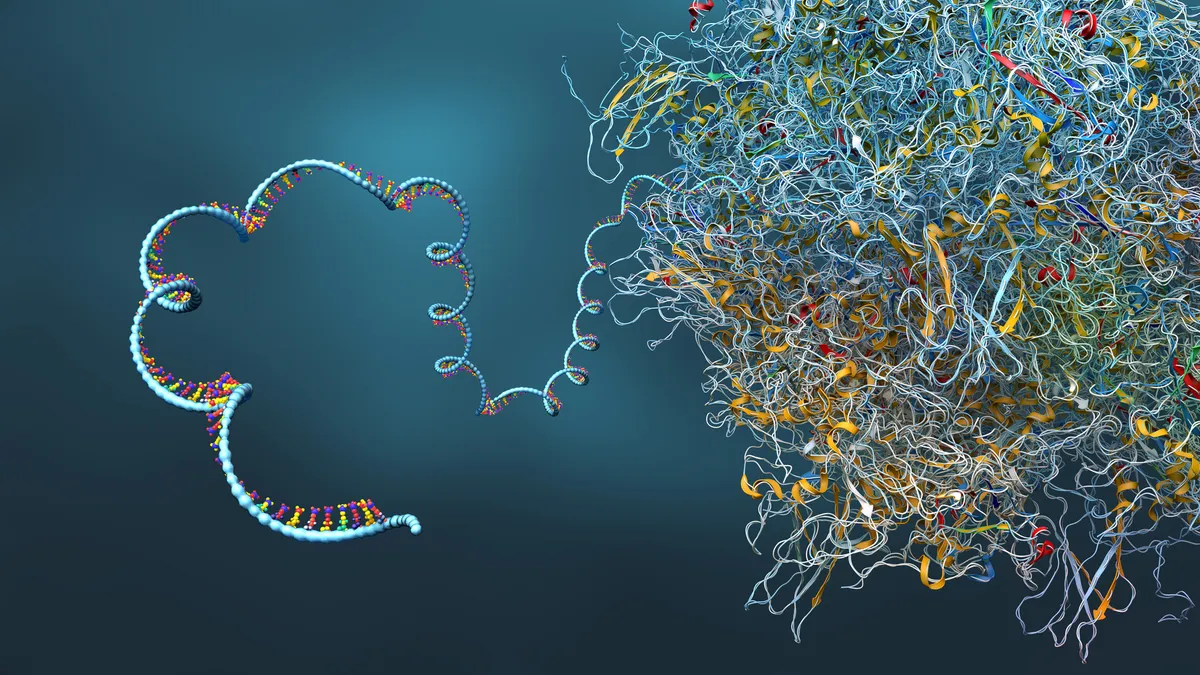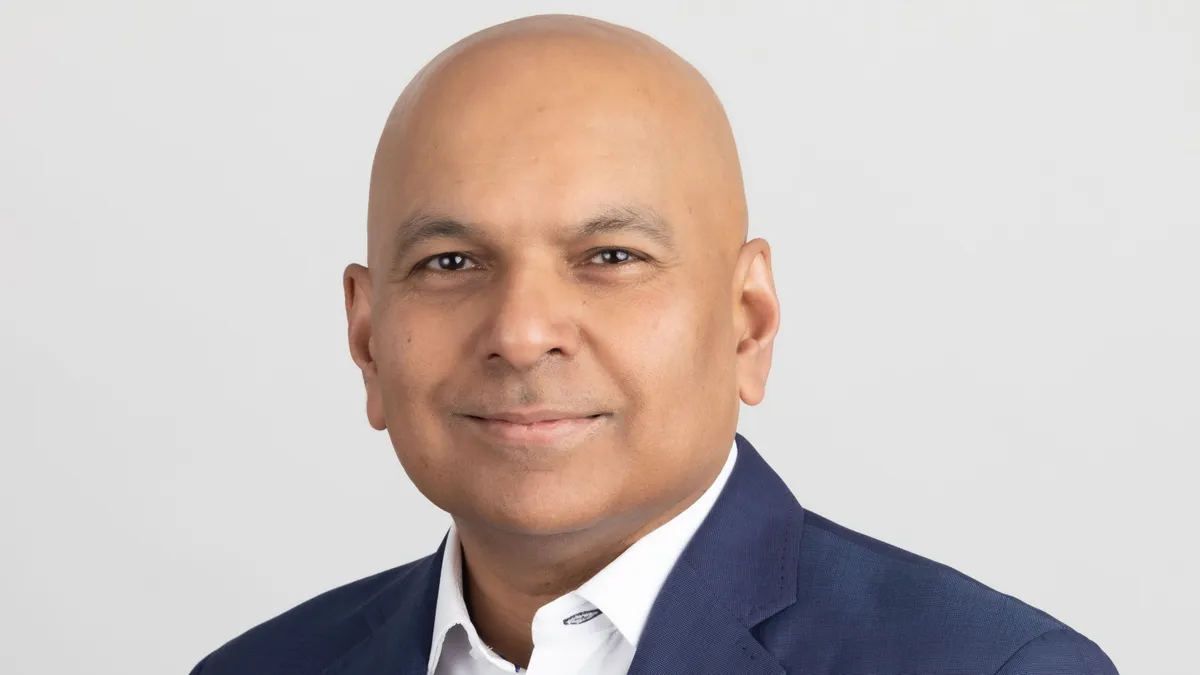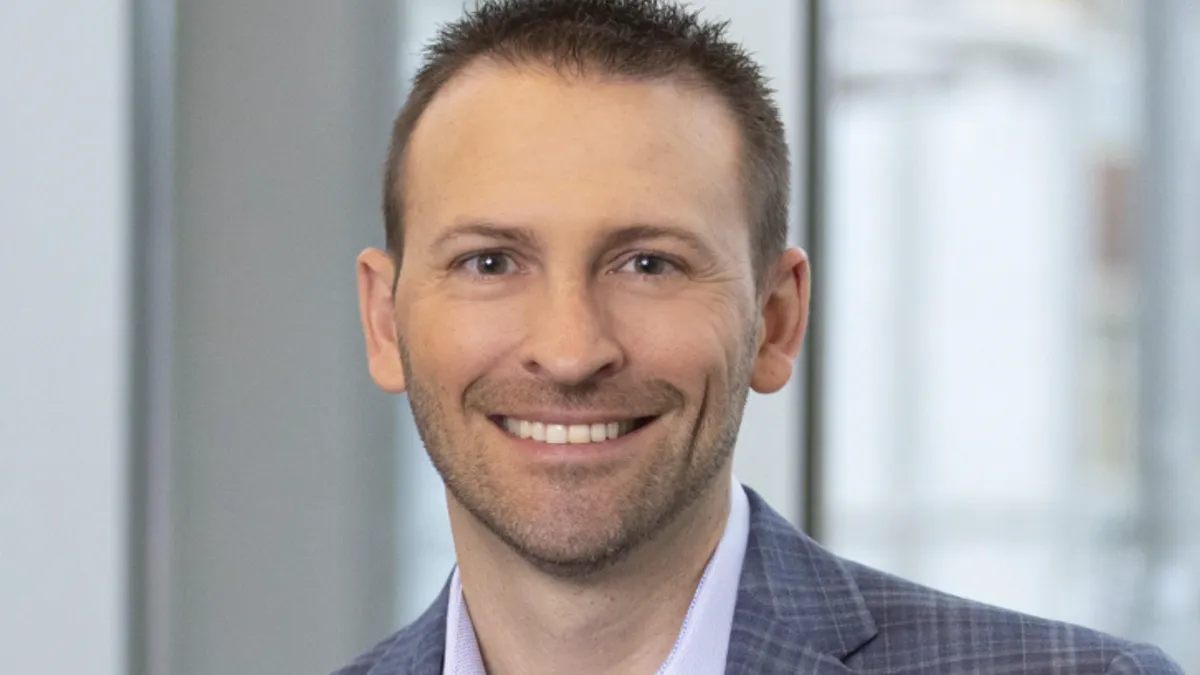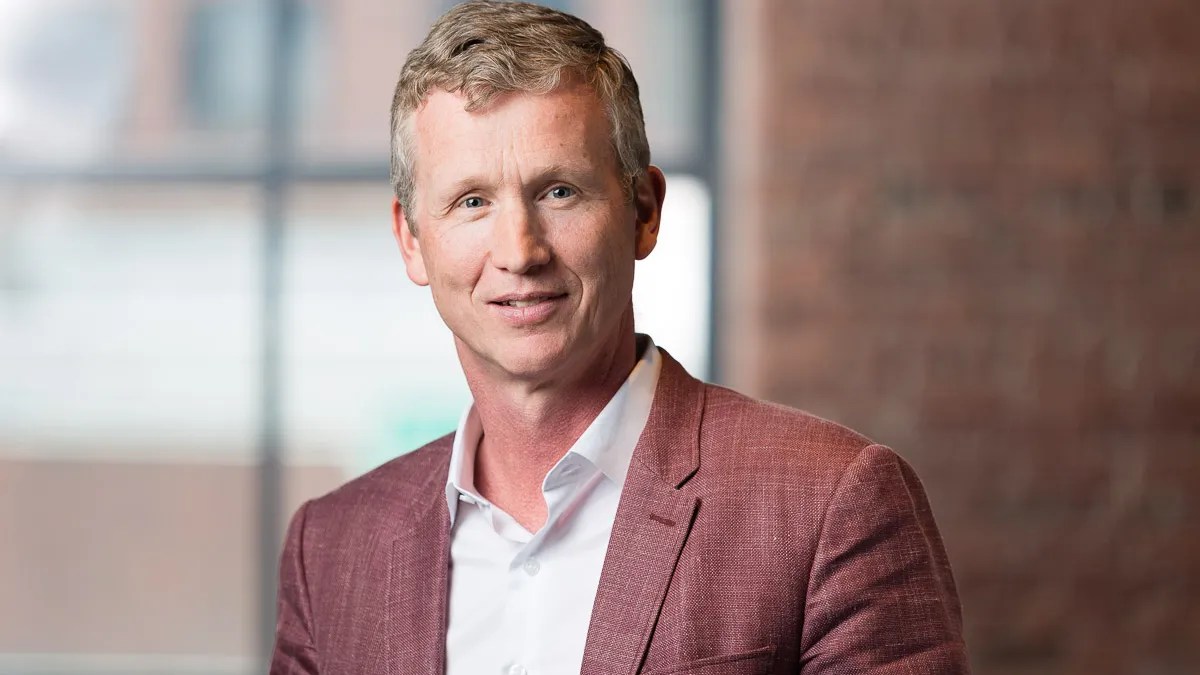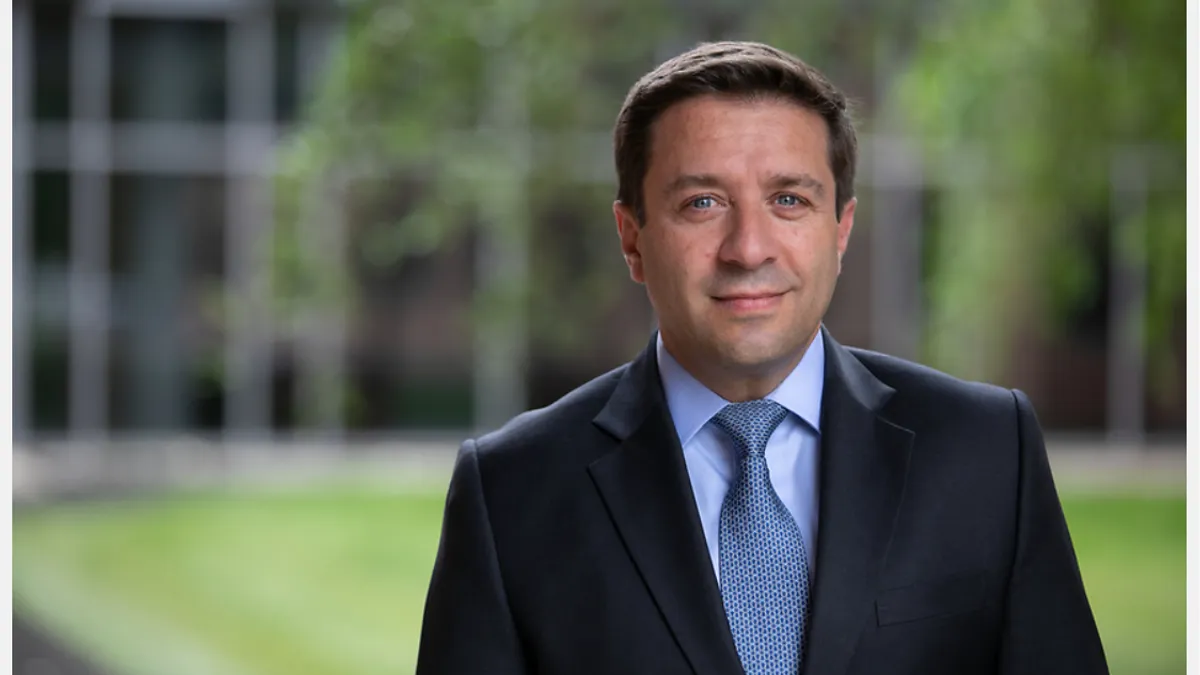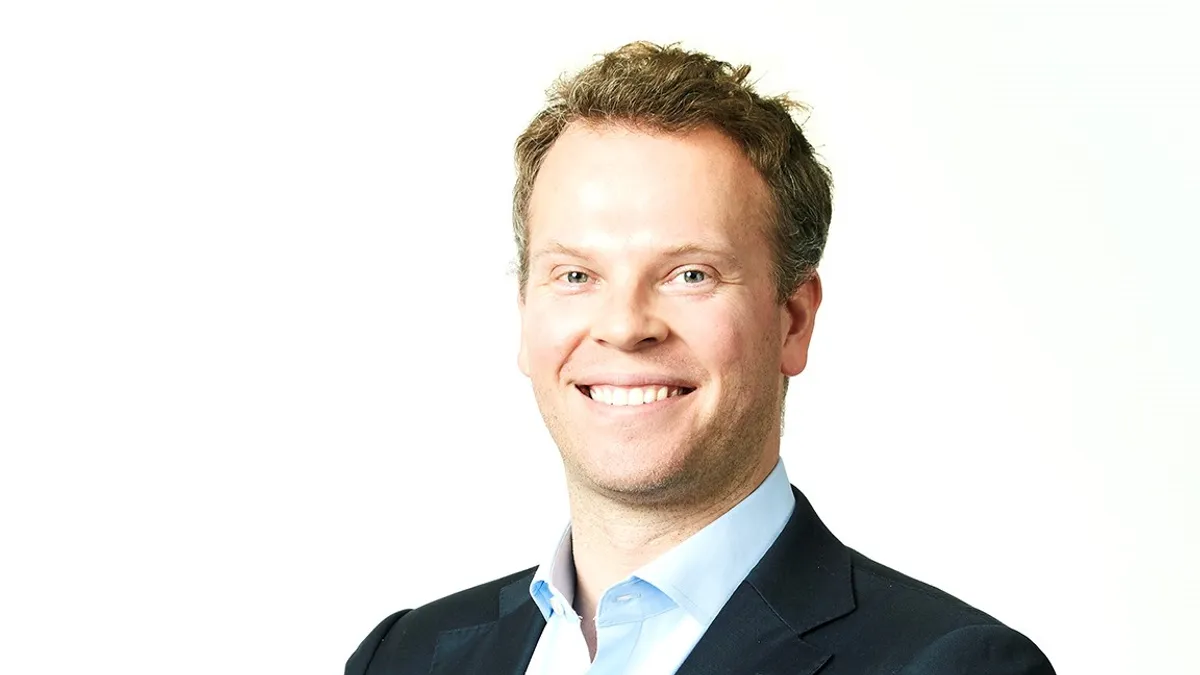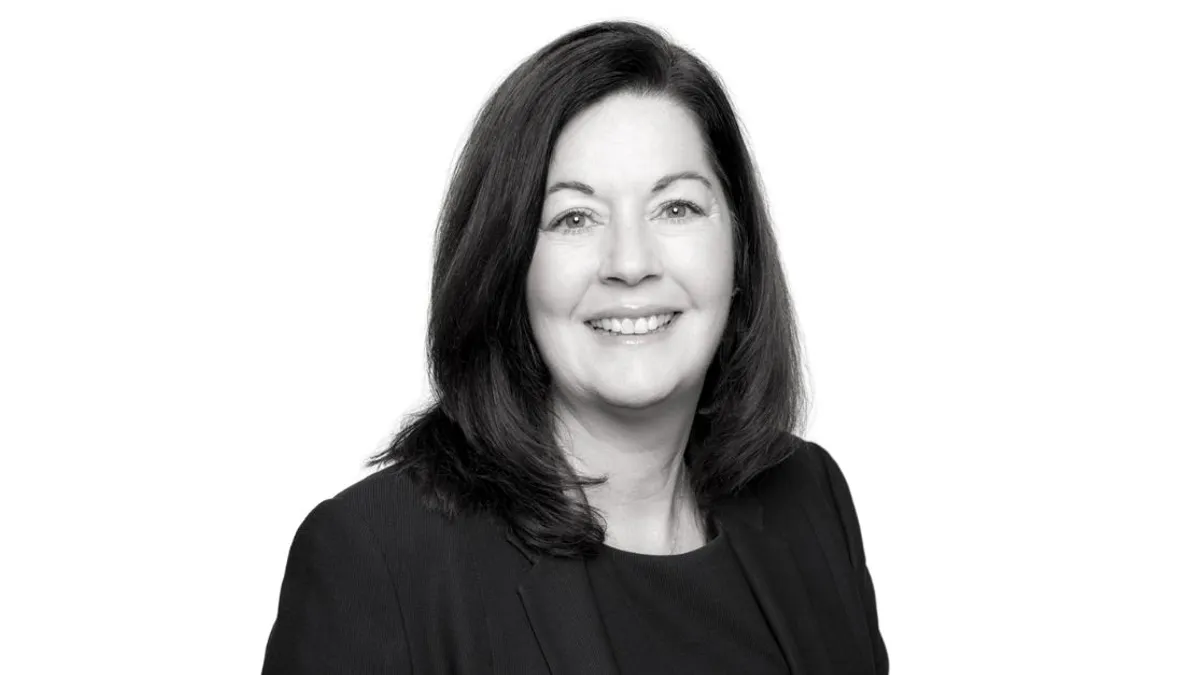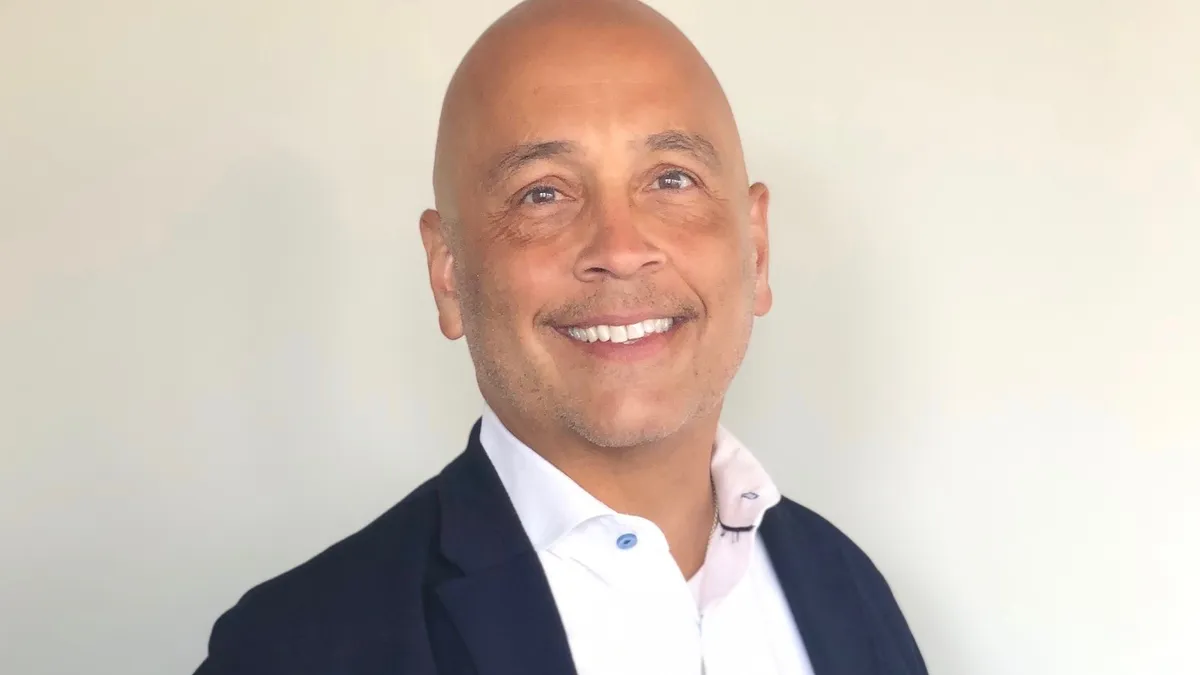Welcome to First 90 Days, a series dedicated to examining how pharma executives and other leaders are planning for success in their new roles. Today, we’re speaking to Utpal Singh, chief scientific officer at Zealand Pharma, a peptide specialist that’s caught Big Pharma’s attention.
Drugmakers looking for an edge in the booming obesity market aren’t just hunting for the next potential blockbuster. Talent is also a hot commodity, and one European biotech with mid- and late-stage obesity assets bagged a big name in the field last month.
Utpal Singh, who calls himself a “drug hunter” on LinkedIn, has leapt from Eli Lilly’s small molecule business into the chief scientific officer role at Zealand Pharma, a peptide-focused biotech with several obesity candidates in the works.
Zealand grabbed headlines mid-March when it announced a development and commercialization deal with Roche worth up to $5.3 billion to advance its phase 2 amylin analog obesity shot petrelintide that’s being tested alone and in combination with Roche’s obesity and diabetes candidate CT-388. The partnership marked pharma’s biggest obesity deal to date and shot Zealand into the limelight.
At Lilly, Singh specialized in strategic partnerships, which will be key in Zealand’s obesity plans. Zealand isn’t the only upstart that’s lured leadership from the obesity market rivals Lilly and Novo Nordisk. Its partner Roche also pulled a senior leader from Novo shortly before announcing its deal with Zealand.
Singh, who was also a scientist at Merck & Co., has moved across the pond to join Zealand at a time of growth. In addition to bringing Singh on board, the biotech announced a new chief development officer — Steven Johnson, a former UCB exec — this week.
Zealand is advancing four obesity assets, including a phase 3 glucagon/GLP-1 receptor dual agonist, survodutide, it’s developing with Boehringer Ingelheim, as well as candidates for congenital hyperinsulinism, short bowel syndrome and chronic inflammation. Most recently, the company completed enrollment for all its phase 3 obesity trials for survodutide. The company is expecting topline trial readouts early next year for survodutide and petrelintide.
But it hasn’t been all smooth sailing for the biotech. In December, the FDA rejected its new drug application for glepaglutide, a long-acting GLP-2 analog for short bowel syndrome. Zealand is still working on a path toward approval for the drug and plans to initiate a new phase 3 trial this year to support resubmission.
As Zealand inches closer to bringing a drug to market, Singh is settling into his new role leading the company’s pipeline strategy and leveraging his strategic expertise.
Here, Singh explains how he’s applying his Big Pharma drug development experience at a small biotech, his leadership style and the promise of peptide drugs.
This interview has been edited for brevity and style.
PHARMAVOICE: What are some of the cultural differences coming from Big Pharma in the U.S. to Zealand Pharma in Copenhagen?
UTPAL SINGH: From Lilly to Zealand, there's more overlap than there are differences. There's a lot of can-do attitude. Certainly, from a disease state standpoint, there's a lot of overlap, so the scientific acumen is also very similar. The one thing I've noticed here… [is] there's a level of scrappiness I've seen at Zealand that's impressive. [And] for an organization this size to have several phase 3 programs and such a highly-valued phase 2 program that will probably begin phase 3 next year — it's pretty impressive. There's a line of sight to several potential launches [and that] … speaks to how resourceful it is.
Is there a level of scrappiness to your role as well?
There is. The element I would probably [give] myself is resilience. My story [begins by] coming to the U.S. [from India] when I was 8 years old, not being able to speak English, and my brother and I were the only two brown kids in the entire school at the time. There's a level of resilience you learn as a first-generation immigrant. I see that here at Zealand, as well. Zealand went through some hard times, but they're resilient. They stuck with it. And right now, we're at a pretty significant pivotal point from a growth standpoint.
Shortly before your position was announced, Zealand made a $5 billion development deal with Roche. What did that deal tell you about the biotech’s pipeline?
Zealand was definitely on my map. Even before the Roche deal, I would say [CEO] Adam [Steensburg] was really in the forefront of saying, as much excitement as there is for GLP-1s, there are some issues around the tolerability. I don't think he gets enough credit for that, but he was one of the earlier folks who put a line in the sand to say GLP-1s are good, but they're not the answer long term. What Roche brings is more confidence that this value will be realized with the scale that [they] can bring to bear, from manufacturing [to] commercial, etc.
Where are we in the scientific timeline for peptide drugs?
I don't think there's been a better time to be in discovery. If you think about the things you could do with peptides today, whether it's different forms of delivery, whether it's using it to target different tissues, whether it's a delivery vehicle, there are a lot of things you could do with peptides today that 10-15 years ago was not possible, and very few people thought was feasible. The question for Zealand is going to be: How much of that do we need to own? And how much of that do we need to partner?
How have you shifted your R&D strategies from Big Pharma to a much smaller organization?
You have to think about what your differentiation is going to be. [Zealand] will never have the scale that Novo, Merck, Roche [or] Lilly has, right? We don't have $50 billion of revenue at our disposal to play with, so … you really have to play to your strengths. Coming from Lilly to here I'm focusing on two or three things. No. 1, it starts with the people. We already have a very strong and talented foundation, but … there's a global war for talent, and you're going to either win or lose based on the people and the teams … that you have.
No. 2 is recognizing that there's not as much risk we can take in our portfolio as a company the size of Novo or Lilly and others have. So we need to be very crisp in our decision making. The targets we start in discovery have to have a clear line to the clinical hypotheses we want to test and where that's going to fit. And ultimately, I think where Zealand can win is on speed. When you're a small, nimble organization, you can make decisions faster. So my focus right now is going to be on making sure that we pick the right targets, we continue to attract top talent and build the talent that we have internally, and compete at a global level. If you pick the right biology and you pick the right people, magic happens.
What would you say is your leadership style?
I've learned a lot about leadership through the eyes of my daughter in the last several years. She hates it when I say that. I'll not stop saying it because it's true, but at least now that I'm in a different country, she won't learn about it. But what really defines me [as a leader] is vulnerability. I don't take myself too seriously. I'm very clear to admit what I know and what I don't know, and I don't mind asking the stupid questions.



